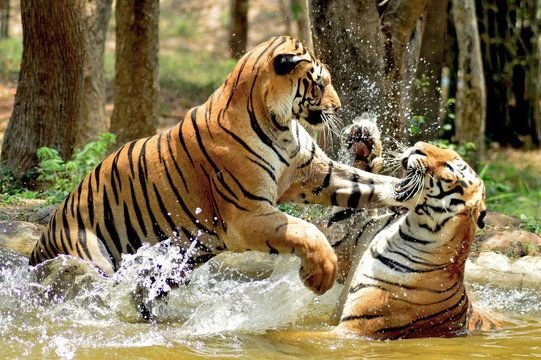The Royal Bengal Tiger, native to India, Bangladesh and Nepal is one of the most iconic big cats. With distinctive orange fur and black stripes, it's the national animal of both India and Bangladesh. Known for strength and agility, these endangered tigers primarily inhabit grasslands and mangrove swamps, showcasing a remarkable apex predator role in their ecosystems. Conservation efforts aim to protect their dwindling populations and habitats.

The scientific name of the Royal Bengal Tiger is Panthera tigris tigris. These tigers are characterized by their strong build, powerful legs, and a distinctive coat pattern that helps them blend into their surroundings. The black stripes on their orange fur serve as camouflage in tall grasses and dense vegetation.
Bengal Tigers are solitary animals, known for their territorial nature. They mark their territories with scent markings and vocalizations, ensuring a defined range for hunting and breeding. Their diet consists mainly of large ungulates like deer and wild boar.
Unfortunately, habitat loss, poaching, and human-wildlife conflict have led to a significant decline in their population. Conservation initiatives, including protected reserves and anti-poaching measures, aim to secure the future of these majestic creatures. Efforts also involve community engagement to reduce conflicts and promote coexistence between tigers and local communities.